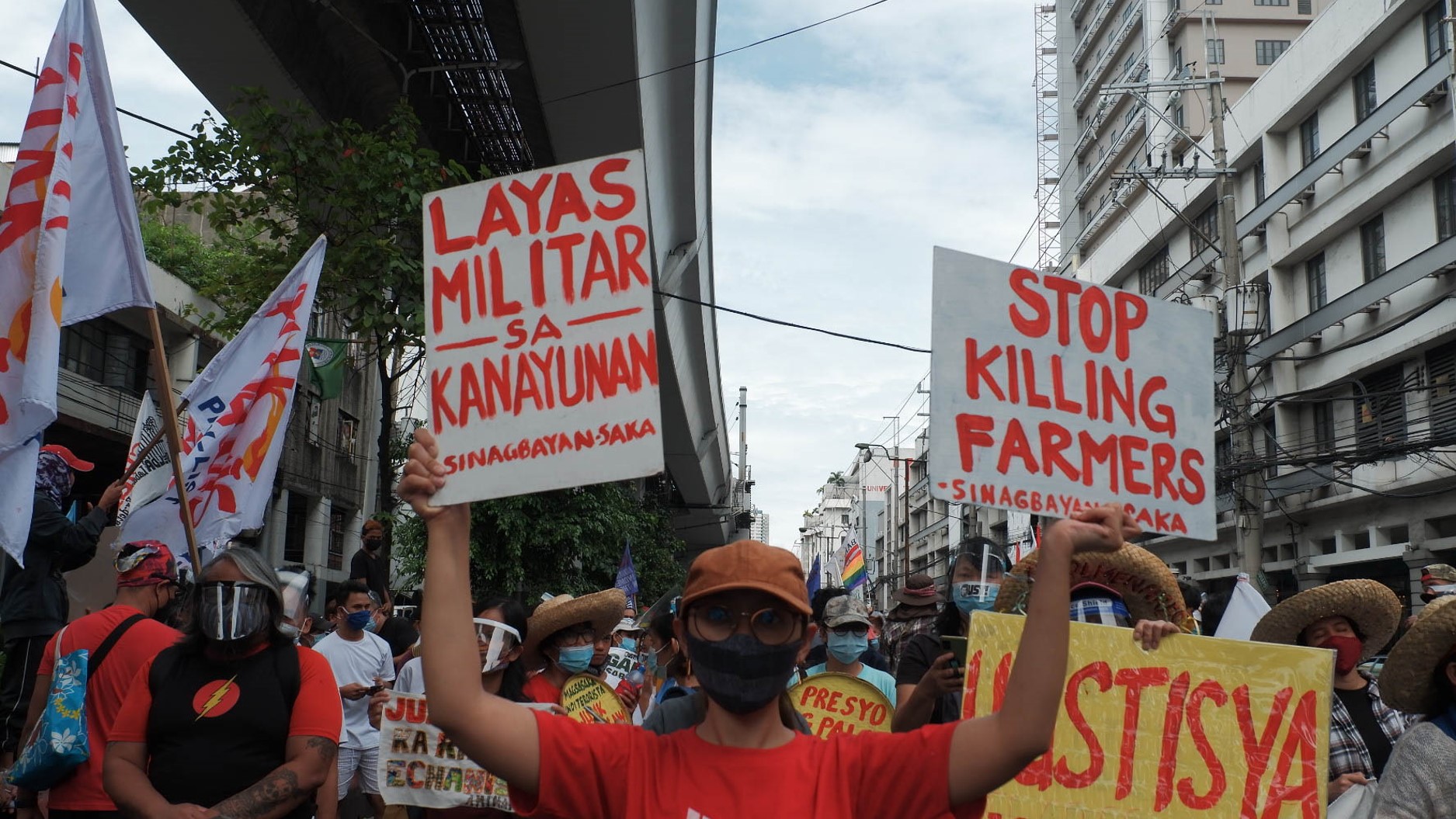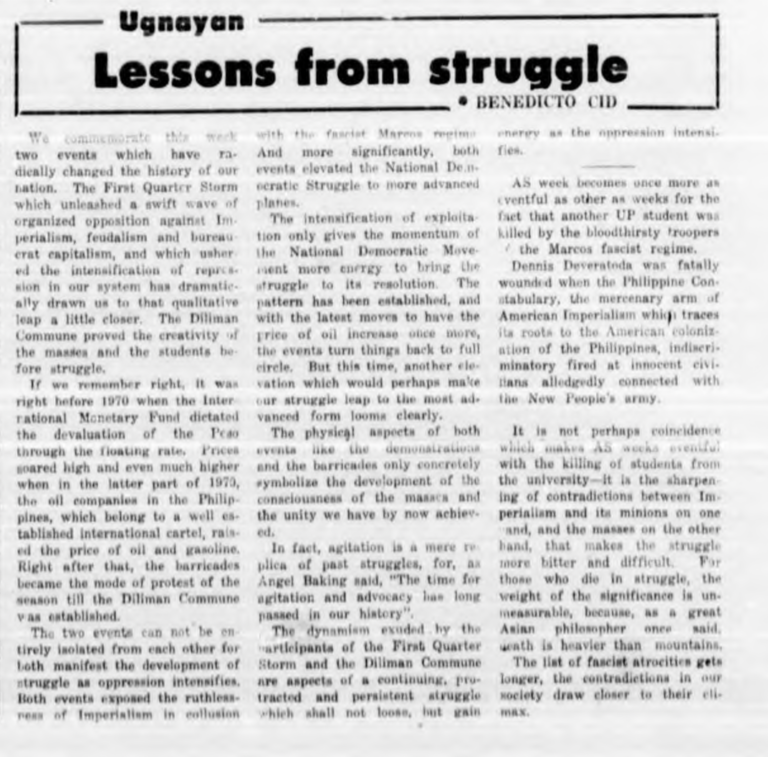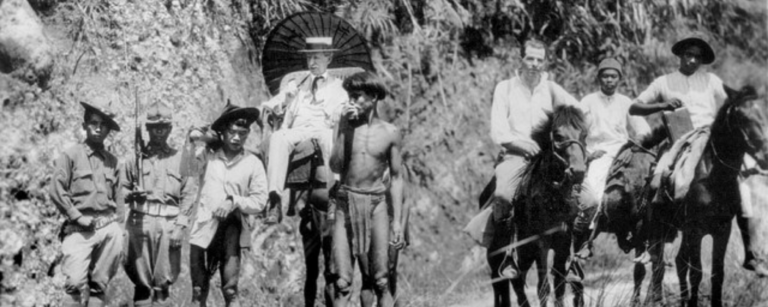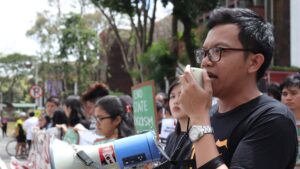
The butcher Duterte and his pigs feed off the people’s hunger.
More than two years ago, Duterte issued a death sentence to farmers when he signed the Rice Liberalization Law.
The future for farmers in the Philippines is forcibly bleak to begin with, brought by an economy hinged upon exports yet remains heavily dependent on imports. The law, however, has exacerbated their plights tenfold as prices of domestic rice plummeted.
Without any support from — and in fact relentlessly antagonized by the Duterte administration— the Filipino peasantry has been made to compete with foreign imports whose lower prices make it more attractive.
Hell bent on quelling the domestic agricultural sector once and for all, Duterte employs another liberalization measure in the form of Executive Order 128, freeing up the economy to more players and lowering the tariff on pork imports from 30 to merely 5 percent. It is yet another death sentence from the administration, this time meant to assail the hog industry.
It is peak irony that the primary producers of food in the country— the very backbone of our economy— are literally starving. Because Duterte and his accomplices lazily live off the fruits of labor of the real wealth-producers, they are strangers to hunger except as an instrument to crush the growing forces of peasant resistance.
Leaving millions of Filipino farmers to starve is a deliberate tactic by the butcher of Malacañang, the same butcher who fattens the fascist pigs that slaughter us.
Whereas the agricultural sector receives only 1.5 percent of the national budget, fascism remains alive and well-funded. Instead of supporting farmers through a P15K production subsidy, funds were channeled into suppressing and murdering them.
In a stark contrast with the Department of Agriculture’s budget of P66.4 billion, alongside the P8.9 billion allocation for the Department of Agrarian Reform, a whopping P209 billion is allocated to the Department of National Defense. The Philippine National Police is also set to receive P190.8 billion, making up a total of 8.8 percent of the national budget. On top of these, the state terrorist organization National Task Force to End Local Communist Armed Conflict (NTF-ELCAC) is allotted P19.1 billion to sustain its red-tagging and killing sprees.
Under Duterte’s brutal regime, there have been 323 killings documented by Sama-samang Artista para sa Kilusang Agraryo (SAKA). Six of them were part of the nine people massacred last March 7, in what came to be known as “Bloody Sunday”.
These sustained attacks are part of the state’s attempt to extinguish resistance, but it has only served to fan the raging flames of peasant unrest. For as long as landlessness continues to be the norm, the struggle for genuine agrarian reform will remain unyielding.
It is also this decades-long landlessness that drives peasants to take up arms.
To then say that all farmers should own the land they till and deny the legitimacy of the armed struggle in the same breath is unfathomable.
In the countryside, the armed struggle is not a question of yes or no. It is not a think-piece to be hotly debated. Neither is it choosing violence over non-violence — because non-violence is defeat in the face of tyranny.
Ultimately, the armed struggle is not for me or for you to decide. In the real world, it is not a topic up for negotiation but a matter of life and death, of struggle and oppression.
For the poorest of the peasants, the armed struggle is not a mere option. They do not have the privilege of mulling over different means of resistance as if they are of equal value.
Breaking the ‘glass ceiling’ is not enough to dismantle haciendas. The farmers do not need pseudo-empowerment; they need land — land that the avaricious landlords will not give up willingly. Instead, they will hide behind deceitful reforms like the Comprehensive Agrarian Reform Program Extension with Reforms or CARPer, which only makes it easier for landlords to facilitate land grabbing and land use conversion.
Meanwhile, the country has yet to see the passage of the Genuine Agrarian Reform Bill (GARB) that, true to its name, will implement genuine agrarian reform by breaking up land monopoly and employing free land distribution. Despite the widespread clamor by legitimate peasant organizations, the bill has languished in Congress for more than a decade. The disparity is striking, but also illuminating.
The armed struggle then is the only path for those who do not have the luxury of choice. It is a means of survival, because the prevailing rotten system has left them for dead.
The revolution is the answer of the toiling masses to enduring neglect and oppression. It is a just response to the unjust social order.
Indeed, to rebel is justified.
For each drop of blood spilled and every life harvested, this murderous regime is sentenced to pay in the people’s courts. By all accounts, Duterte will be ousted.







